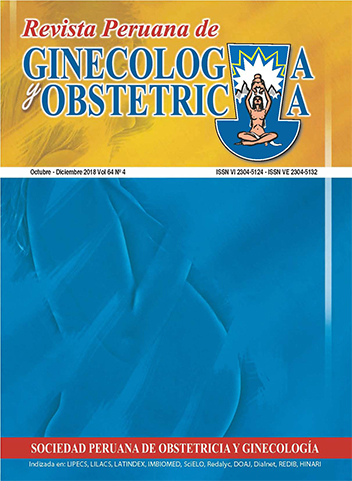Fetal sclerotherapy for lung tumors
DOI:
https://doi.org/10.31403/rpgo.v64i2135Abstract
Microcystic fetal lung tumors or masses such as the congenital cystic adenomatoid malformation (CCAM) and bronchopulmonary sequestration (SBP) are rare congenital pathologies, diagnosed by ultrasound during prenatal assessment, with a high mortality rate of 95% as a consequence of prenatal complications due to hydrops and postnatal death from pulmonary hypoplasia. Minimally invasive therapies using sclerosing agents are positioned among the low cost and highly effective techniques for such pathologies. Methodology: We conducted a prospective, randomized, blind clinical study in 17 pregnant women with diagnosis of fetal microcystic CCAM or hybrid lesion (CCAM + SBP), who were treated with betamethasone or polidocanol. Alternative therapy was employed in case of failure of the initial procedure. Results: In four (44.4%) of the nine cases treated with betamethasone, the alternative therapy of sclerosis with polidocanol was required for treatment due to fetal compromise. Involution of the lung lesion and the hydropic condition was faster and progressive with percutaneous sclerotherapy compared to the maternal steroid effect. Perinatal results were also more satisfactory in the group with polidocanol (91.7%) than in the group with the steroid (60%). Conclusions: Percutaneous sclerotherapy with polidocanol was found efficacious for CCAM and hybrid lesion treatment, with faster and more efficient resolution of the pathology in cases resistant to previously administered steroid therapy.Downloads
Download data is not yet available.
Downloads
Published
2018-12-11
How to Cite
Diaz Primera, R. J., Gil Guevara, E. D., Sánchez Jiménez, R., & Bermúdez González, C. (2018). Fetal sclerotherapy for lung tumors. The Peruvian Journal of Gynecology and Obstetrics, 64(4), 647–654. https://doi.org/10.31403/rpgo.v64i2135
Issue
Section
Simposio - Cirugía Fetal en América Latina
















